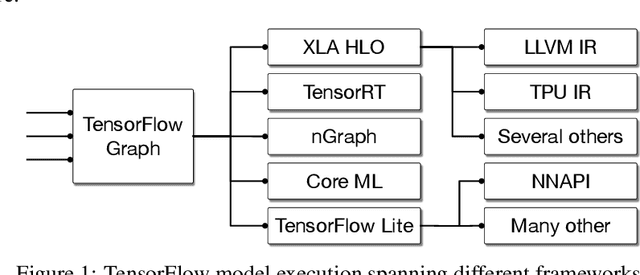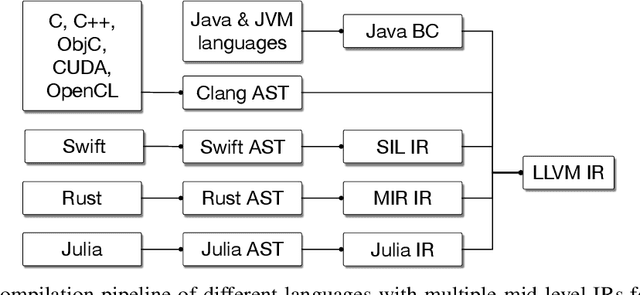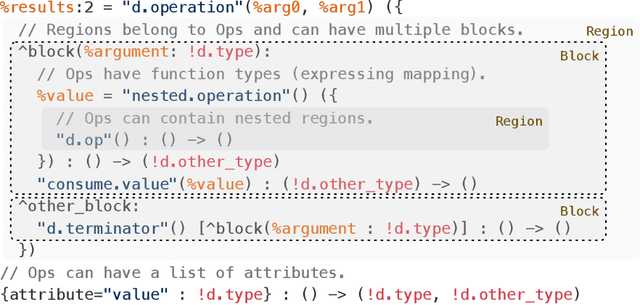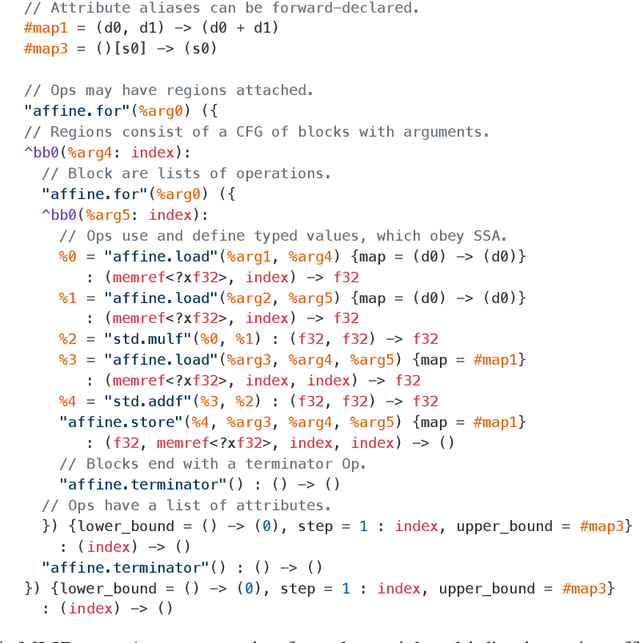Jacques Pienaar
Equality Saturation for Tensor Graph Superoptimization
Jan 05, 2021Abstract:One of the major optimizations employed in deep learning frameworks is graph rewriting. Production frameworks rely on heuristics to decide if rewrite rules should be applied and in which order. Prior research has shown that one can discover more optimal tensor computation graphs if we search for a better sequence of substitutions instead of relying on heuristics. However, we observe that existing approaches for tensor graph superoptimization both in production and research frameworks apply substitutions in a sequential manner. Such sequential search methods are sensitive to the order in which the substitutions are applied and often only explore a small fragment of the exponential space of equivalent graphs. This paper presents a novel technique for tensor graph superoptimization that employs equality saturation to apply all possible substitutions at once. We show that our approach can find optimized graphs with up to 16% speedup over state-of-the-art, while spending on average 48x less time optimizing.
MLIR: A Compiler Infrastructure for the End of Moore's Law
Mar 01, 2020



Abstract:This work presents MLIR, a novel approach to building reusable and extensible compiler infrastructure. MLIR aims to address software fragmentation, improve compilation for heterogeneous hardware, significantly reduce the cost of building domain specific compilers, and aid in connecting existing compilers together. MLIR facilitates the design and implementation of code generators, translators and optimizers at different levels of abstraction and also across application domains, hardware targets and execution environments. The contribution of this work includes (1) discussion of MLIR as a research artifact, built for extension and evolution, and identifying the challenges and opportunities posed by this novel design point in design, semantics, optimization specification, system, and engineering. (2) evaluation of MLIR as a generalized infrastructure that reduces the cost of building compilers-describing diverse use-cases to show research and educational opportunities for future programming languages, compilers, execution environments, and computer architecture. The paper also presents the rationale for MLIR, its original design principles, structures and semantics.
 Add to Chrome
Add to Chrome Add to Firefox
Add to Firefox Add to Edge
Add to Edge